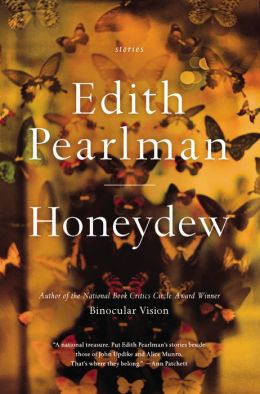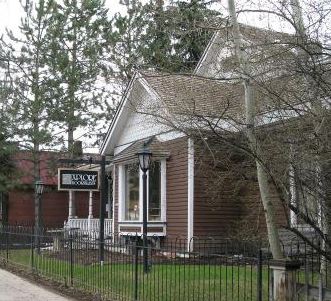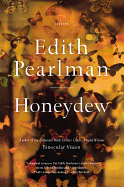 Edith Pearlman's short stories have often been compared with John Updike's, and the comparison is apt. Born in 1936, Pearlman has published four collections. Her 2011 collection, Binocular Vision, won the National Book Critics Circle Award. What makes her so good? A glimpse into Honeydew's fictional world provides some answers.
Edith Pearlman's short stories have often been compared with John Updike's, and the comparison is apt. Born in 1936, Pearlman has published four collections. Her 2011 collection, Binocular Vision, won the National Book Critics Circle Award. What makes her so good? A glimpse into Honeydew's fictional world provides some answers.
For years, Pearlman has populated her fictional town, Godolphin, a "leafy wedge of Boston," with great characters. She revisits it often, as in "Honeydew," included in The Best American Short Stories 2012. Besides Coccidae droppings (also known as honeydew), it's about a headmistress at a private girl's school, Caldicott Academy, who must confront her pregnancy by the married father of one of her students. In "Blessed Harry," Mr. Flaxbaum, who teaches Latin and coaches the chess club at Caldicott, has been invited to give a lecture in England--or, unknown to Mr. Flaxbaum, maybe he hasn't. And there's Rennie, who runs the Forget Me Not antique shop in Godolphin, who shows up in two stories.
Rereading each of these 20 intricate gems reveals their meticulous structure. Every story is brief, no longer than 20 pages or so. The shortest, "The Descent of Happiness," is barely five. Its narrator, Emma, looks back on a visit her father, a country doctor, made to an elderly lawyer friend, with young Emma in tow. She always feared the lawyer's dog, James Marshall. On this day the dog barks loudly, Emma flees, falls. Face on the ground, she looks closely at a maple leaf's intricacies before being swept up and hugged by her father. That one moment is the whole story, one that Emma can't forget: "I have never been so happy since." Many of Pearlman's stories, like Joyce's, end with an epiphany.
Pearlman says she likes "solitaries, oddities, charlatans, and children. My characters are secretive," like the repressed middle-aged Gabrielle in the intriguingly titled "What the Ax Forgets the Tree Remembers." That story surprises with its quiet journey from the horrors of female circumcision suffered by Somali women to the joy and love of lesbian desire. All of the powerful emotions are depicted in a rich, controlled prose, one of the earmarks of a Pearlman story. Whether it be for carefully dissecting her characters' feelings or observing tiny details, Pearlman reveals her acute eye time and time again: one character's sadness is "always wedged under her breast like a doorstop," and a man has "teeth like cubes of cheddar."
The collection has a distinct, Winesburg, Ohio feel to it. Like Sherwood Anderson's classic, Honeydew is a portrait of America, only this time it's the East Coast in the 21st century, as painted by one of our finest literary artists. --Tom Lavoie, former publisher
Shelf Talker: In the tradition of Joyce, Chekhov, Updike and Munro, Pearlman's surprising, memorable stories are joys to behold.
 "As long as we have a good team of people and continue that connection, I think the store will be all right.... I think we've managed to do a good job of honing the brand of Books Kinokuniya, of honing the skills of the people who hold the brand and providing an experience within the store. I think that will compel customers to come back again and again."
"As long as we have a good team of people and continue that connection, I think the store will be all right.... I think we've managed to do a good job of honing the brand of Books Kinokuniya, of honing the skills of the people who hold the brand and providing an experience within the store. I think that will compel customers to come back again and again."





SHELFAWARENESS.0213.S4.DIFFICULTTOPICSWEBINAR.gif)




 A Children's Place
A Children's Place
 Penguin Random House has expanded the #GiveaBook program when, in three weeks, it surpassed its initial goal of donating 25,000 books to Save the Children. The publisher has now pledged to donate another 10,000 books for additional posts and tweets containing the #GiveaBook hashtag through December 24. The
Penguin Random House has expanded the #GiveaBook program when, in three weeks, it surpassed its initial goal of donating 25,000 books to Save the Children. The publisher has now pledged to donate another 10,000 books for additional posts and tweets containing the #GiveaBook hashtag through December 24. The SHELFAWARENESS.0213.T3.DIFFICULTTOPICSWEBINAR.gif)

 In a
In a  In its 38th year, New World Library is staying alive and celebrating. The staff presented founder and publisher Marc Allen (back row, fourth from the right), a former rock 'n roller who has created several albums of music, with a classic Les Paul guitar played and signed by Barry Gibb of the Bee Gees. The guitar was won at an auction that supported the Dream Foundation, so it was all for a good cause.
In its 38th year, New World Library is staying alive and celebrating. The staff presented founder and publisher Marc Allen (back row, fourth from the right), a former rock 'n roller who has created several albums of music, with a classic Les Paul guitar played and signed by Barry Gibb of the Bee Gees. The guitar was won at an auction that supported the Dream Foundation, so it was all for a good cause.  "You're a grown-up shopping for a children's book for the holidays, and I'd really love to help you," Appell observed. "In the front two-thirds of our store, I can't do you much good--not the way my co-workers can. I haven't read a book written for adults in years. The back of the store is my area of expertise....
"You're a grown-up shopping for a children's book for the holidays, and I'd really love to help you," Appell observed. "In the front two-thirds of our store, I can't do you much good--not the way my co-workers can. I haven't read a book written for adults in years. The back of the store is my area of expertise.... 
 Edith Pearlman's short stories have often been compared with John Updike's, and the comparison is apt. Born in 1936, Pearlman has published four collections. Her 2011 collection, Binocular Vision, won the National Book Critics Circle Award. What makes her so good? A glimpse into Honeydew's fictional world provides some answers.
Edith Pearlman's short stories have often been compared with John Updike's, and the comparison is apt. Born in 1936, Pearlman has published four collections. Her 2011 collection, Binocular Vision, won the National Book Critics Circle Award. What makes her so good? A glimpse into Honeydew's fictional world provides some answers.